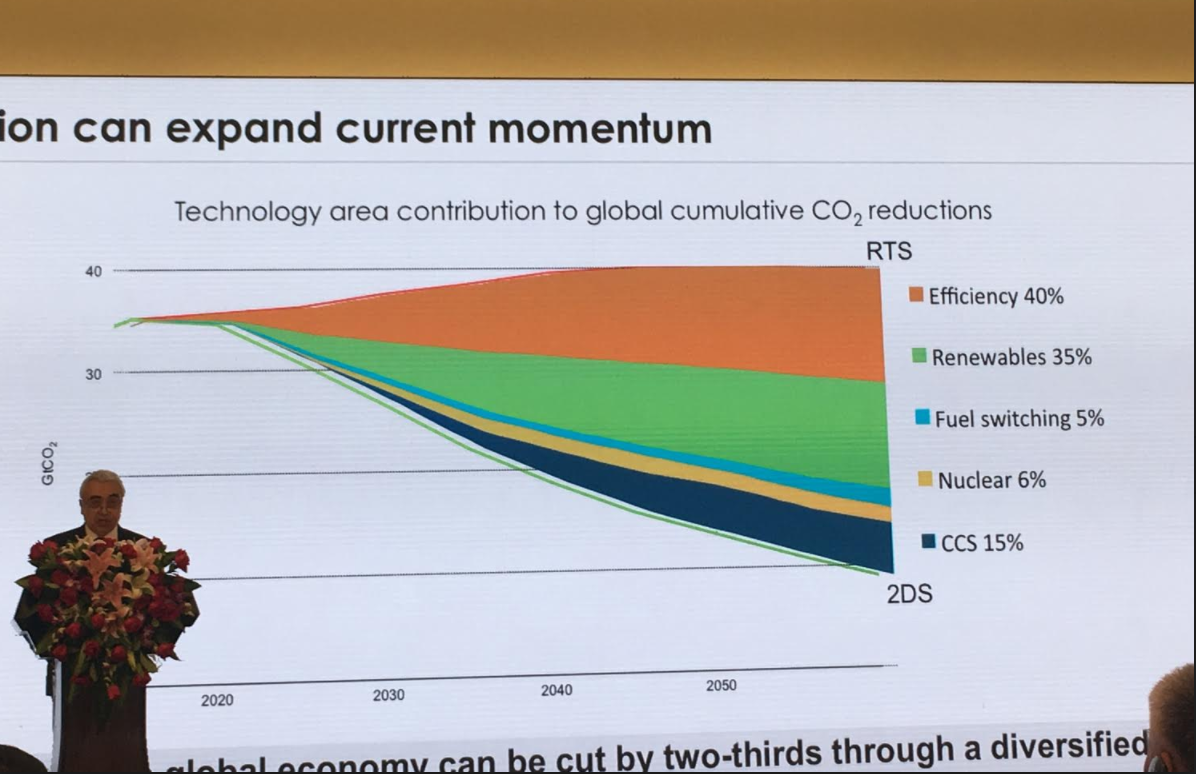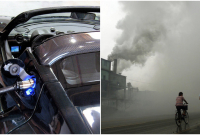Support strong Canadian climate journalism for 2025
As you might expect, on the first day of the Clean Energy Ministerial gathering in Beijing this week, the hallways were filled with discussions about U.S. President Donald Trump’s decision to withdraw the United States from the Paris Agreement.
What, if any, impact would this have on the global transition to clean energy?
The answer, both in the hallways and in the meeting rooms—where we heard from the heads of the International Energy Agency (IEA), the International Renewable Energy Agency, and numerous other speakers—was clear and forceful: the transition to clean energy is irreversible.
As we’ve documented in our annual Tracking the Energy Revolution reports, a confluence of economic, political, social and environmental forces have created the conditions to deliver $2 trillion of global clean energy investment over the past five years.
At a session launching this year’s edition of its annual Energy Technology Perspectives report, IEA executive director Fatih Birol profiled clean energy’s significant progress in three key areas: electric vehicles, energy storage tech, and renewable energy growth.
Here's what we know:
- With over 750,000 electric vehicles sold in 2016, raising the global stock to two million, the world is on track to hit a 2025 milestone for EV deployment consistent with the contribution required from the sector to limit climate change to 2℃ (the IEA’s modelled two-degrees scenario, or 2DS)
- Similarly on track with 2DS levels is the contribution of energy storage technologies, which reached almost 1 gigawatt (GW) of deployment in 2016.
- Strong annual capacity growth from solar PV and onshore wind was enabled by record-low long-term contract prices in Asia, Latin America and the Middle East. Both technologies have bright prospects, driven by cost reductions and policy improvements in key markets—putting them on track for 2DS levels of deployment. That said, other renewable power technologies aren’t yet on track.
Thanks to this progress, global emissions have been flat for three years running, according to the IEA. Overall, however, most of the technologies that require deployment to achieve the two degrees scenario are not yet on track.
Notably, this includes energy efficiency—for buildings, lighting, appliances, shipping, aviation and both light- and heavy-duty vehicles—which, according to the two degrees scenario, would deliver a leading 40 per cent of emission reductions.

Research, development and deployment (RD&D) will be key to unlocking further technological progress—and will require significantly more investment from governments and companies alike. Within the energy sector, for example, corporate investment in RD&D remains dominantly focused in oil and gas, with more than twice as much investment as in clean energy.
Looking at combined public (which dominates) and private RD&D investment, the International Energy Agency has found it totals only $26 billion and has declined slightly from 2012 to 2015. While $26 billion might sound like a lot, consider that the top three information technology companies in the world spend more than $40 billion per year on RD&D.
Clearly, there is more to do, which is where public initiatives (like Mission Innovation) and private initiatives (like the Breakthrough Energy Coalition) can help turn things around.
Despite the challenges that lie ahead, the energy at the Clean Energy Ministerial is electric. As the minister of energy from Sweden, who will host next year’s Clean Energy Ministerial, noted:
“We underestimate the power of this energy transformation. You can’t model it.... It goes faster than expected…. It will happen, and best thing you can do is be at the forefront.”

— Merran Smith is executive director and Dan Woynillowicz is policy director at Clean Energy Canada, a program of the Centre for Dialogue at Simon Fraser University.







Comments
Maybe. But in the first world, and Canada in particular, a lot of people still lucky enough to be in the middle class everyone is on about, need to pass on tanning their ass on tropical beaches for a season or three, and get their panels up. An electric car can be had in lieu of a couple of those jet set forays as well......and then by gar, you've contributed something to your children's future.
There's been too many 'free riders' espousing neoliberal cant in the last few years, while living as if we had five planets. I'd like to see even a fifth of them step up and put their money to something worthwhile. Waiting for big money to do all the heavy lifting is akin to the naivety that has given us the last 30 years of "wealth creation' and 'environmental rip off."
Time we all stepped up to another game entirely.